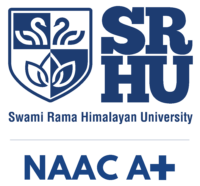M. Sc. Microbiology
September 26, 2025 2026-02-12 7:26M. Sc. Microbiology
M. Sc. Microbiology
Programme Level
Postgraduate
Duration
2 Years
Overview
M.Sc. Microbiology program is a comprehensive postgraduate course designed to provide in-depth theoretical knowledge and advanced practical skills in the study of microorganisms and their applications. The program integrates core concepts of microbiology with emerging trends in biotechnology, molecular biology, immunology, and environmental sciences, preparing graduates for academic, industrial, and research-oriented careers.
The curriculum covers major areas such as microbial physiology, molecular microbiology, virology, immunology, clinical microbiology, food and industrial microbiology, microbial ecology. Specified components familiarize students to recent practices comprising microbial culture methods, molecular as well as omics approaches, bioinformatics, and biostatistics.
Practical training is a key component of the program. Students gain hands-on experience in laboratory experiments, instrumentation, aseptic techniques, microbial identification, and data analysis. Regular laboratory sessions, seminars, and workshops help develop analytical thinking, problem-solving abilities, and scientific communication skills. The program includes a mandatory dissertation or research project, enabling students to apply theoretical knowledge to real-world scientific problems under expert supervision.
Graduates of the program are well-equipped for careers in research laboratories, pharmaceutical and biotechnology industries, food and dairy industries, clinical and diagnostic laboratories, environmental monitoring agencies, and academic institutions. Program provides a strong foundation for doctoral studies, and aims to develop skilled microbiologists capable of contributing to academic, scientific innovation, and public health.
Programme Objective
To provide a comprehensive understanding of core microbiological concepts integrating biotechnology, biochemistry, molecular biology, and immunology. The course also guides the students to apply the microbiology theories into areas that focus on live problems faced by the environment and industry; develop strong practical and analytical skills through hands-on laboratory training; and foster scientific thinking, ethics, and biosafety awareness. The program aims to train students in modern microbiological techniques, research methodologies, and data interpretation. It seeks to prepare graduates for careers in research, healthcare, industry, and academia, and to build a strong foundation for doctoral studies and interdisciplinary applications in biotechnology, environmental science, agriculture, and public health.
Eligibility
The student shall be eligible for admission to a M.Sc. Microbiology Program after he/she has successfully completed a three years B.Sc. undergraduate degree with microbiology/ biotechnology/ biochemistry/ botany/ zoology/ medial laboratory technology/food science and technology/pharmaceutical sciences/biological sciences as one of the subjects or earned with not less than 50% marks or equivalent grade prescribed number of credits or through the examinations conducted by university as equivalent to an undergraduate degree.
Employability
M.Sc. Microbiology graduates have strong employability across diverse sectors due to their specialized knowledge, laboratory skills, and research training. Besides research, they can get suitable teaching positions in Colleges and Universities as an Assistant Professor after qualifying National Eligibility Test (NET). The list below provides a synoptic overview of possible career path:
- Healthcare Industry
- Diagnostics Research
- Food and dairy Industries
- Distillery and Wineries
- Drug Manufacturing Industries
- Public Health Entities
- Industrial Laboratories
- Research Departments
- Educational Institutes
- Environmental Pollution Control
- Agriculture and Fisheries
- Hospitals
- Public Health Laboratories
- Cosmetic Industries
- Genomics Industries
- Diagnostics and Testing Industries
- Entrepreneurship in microbiology-based startups
Types of companies with career opportunities
- Leading organizations across healthcare, biotechnology, pharmaceuticals, food, and research sectors
- Diagnostic, research, and quality control
- Government research and regulatory bodies
Merit Scholarship
Merit Cum Means Scholarship
Loan Facility
Special Scholarship
Fee Relaxation
Free-Ship Scholarship
SRHU University
Your Future Begins Here

